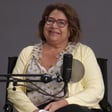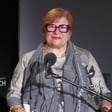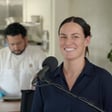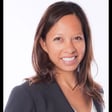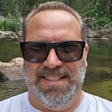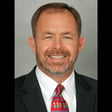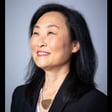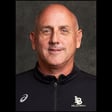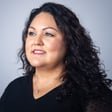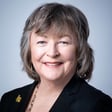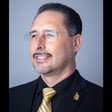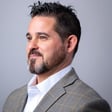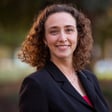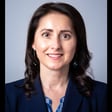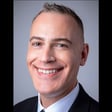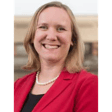Become a Creator today!Start creating today - Share your story with the world!
Start for free
00:00:00
00:00:01

'Creating a community of belonging'
Dan Montoya and his guests, Candi Marsh and Rodney Meredith, discuss CSULB's Guardian Scholars program, which supports current and former foster youth pursuing degrees at The Beach.
Transcript
Introduction to the Podcast and Guests
00:00:18
Speaker
Hello, I'm Dan Montoya, Vice President for University Relations and Development. Welcome to At the Beach. This podcast is produced by URD, share news of accomplishments and honors, personal stories, and ways listeners can become involved with Cal State Long Beach. Today, I am so happy to introduce my guest, Candy Marsh and Rodney Meredith. Candy is an associate director of Cal State Long Beach's Garden Scholars Program. She's an academic counselor. And Rodney is one of our program's success stories. Welcome to At the Beach. Candy and Rodney, it's good to have you. Thanks for having us. This is so great. Really excited to be here. Thank you.
Overview of the Guardian Scholars Program
00:00:58
Speaker
So for our listeners, here's a bit of background on CSULB's successful Guardian Scholars Program. So the Guardian Scholars Program supports current and foster youth who are pursuing their undergraduate and graduate degrees at CSULB. The idea behind the program is to create an affirming community of care where students can learn, grow, thrive, and succeed at the beach. So there's a lot to this program and there's there's a couple of of different programs throughout the CSU. So Candy, can you give us a little bit of background on the program and you know what you do in your current position?
00:01:37
Speaker
Sure. um This program is really unique because we do serve foster youth, but it comes under the EOP program. So prior to me being in this role, we had Dr. John Hamilton, who was the assistant director at the time. Who was working with our EOP students and there were some fossil youth that was coming to him And so he realized that there was a need and so he started working with this small group It wasn't even Garden Scholar. I think it was like Foster Youth Network at the time and He really decided saw that there was a real need. So he started just working with them separately. He um connected with I think
00:02:19
Speaker
Pritzker Pritzker was the first ah grant that he received to kind of support the the work right and From there, we're just kind of like, you know, we've been booming ever since. Oh My god i lost my train of thought sorry um So after that once once a Pritzker got involved um he partnered with DCFS and so that kind of became the um the chain, I guess the connection between DCFS and Long Beach and how for us to build that bridge and that pipeline, should I say, right to get the students to our campus. So he worked really closely with DCFS. And then from there, we were able to kind of get the campus, get Guardian Scholars as a recognized group on campus. That's great. How many how many garden scholars do we have currently in the program? That's a really hard question. Okay. So when students apply, they have to answer specific questions through the admissions process. And through that, we are able to identify that they might be eligible for our program. So it's like this this past fall, there are about maybe 500 students that
00:03:27
Speaker
fall under that category. So our mission coordinator, what she'll do is she'll reach out to those students and if they um provide the appropriate documentation, then they will go ahead and apply. Some students, um once they're in care, as you know um what you may not know, sometimes they don't want that stigma. They kind of want to move away from it. So even if they might meet that particular criteria, they may not want to be a part of our program.
Rodney's Experience and Support during COVID-19
00:03:50
Speaker
Currently right now we have about 150 students that have provided us with appropriate documentation and are a part of our program. But there could be more on this campus that just are not have not, you know, decided to be a part.
00:04:04
Speaker
Right. And so a lot of, all these students have to qualify just like any other student, right? It's it's not like they're given any preference. They qualify and they get admitted into Cal State Long Beach, correct? Absolutely. Correct. They do all the A through G, they they get accepted just like all other students. So that's amazing. Just to get to this point is um it's a huge accomplishment. Yeah. And so, you know, when, when I think of, uh, of, uh, guardian scholars or FOSU, these, these are students who don't have typical resources like most students have. Right. And that's kind of what sets them apart. So, uh, in, in Rodney, you know, kind of, I've heard your story, which is amazing.
00:04:47
Speaker
And they don't typically have, you know, people to fall back on or lean on all the time to get the resources or the help they need. So maybe, maybe share with us a little bit about your journey, Rodney, on how you got to Cal State Long Beach and share with us a little bit what you enjoy about the program. So I came in during COVID during 2020. And then instantly when I came into 2020, all I remember was like having this zoom call. And then I just remember Candy being there. And then this other person, I forgot his name, but I'm only going to have like Candy cause she was like the main one talking to me. And so she was just like, welcome. Oh, it was for a men's success initiative. So like men of color. So she was like trying to group us in and help me find like a belonging.
00:05:33
Speaker
but then she also like instantly gave me the support like since I was on what is it called for and when you get paid it you're able to become a student worker again or work then work so she was like breaking down what college was for me because again I didn't have like the full like transition I didn't wasn't educated on it nor did I have the Family to really like educate me since I was first generation, right? So Kenny was able to provide that knowledge for me and instantly over like a zoom call so from there she like broke down with financial aid what she broke down like what the class schedule is gonna look like like The whole idea of my student portal so that like gave me more like exposure And so with that exposure she was able to get me become already working as a student working like going through the documentation I'm there I was able to transition into a whole role. So then once we came into like a What was the question again like Cal State Long Beach? Yeah, yeah just tell it talks about your journey and and how you got here Okay, so yeah So then just coming in zoom as we know it's like very hard transition from high school into zoom and being in college so it's just like navigating even working through zoom was pretty difficult because it was like you'd need the Interpersonal skills in person, you know to develop that communication but overall exposure to how to like handle real life situation so I feel like
00:06:43
Speaker
Since over Zoom, it was like pretty difficult, but eventually Zoom was just hard in general like for all students, I believe. like It created a lot of like mental health stigmas, I would say, like just emotionally draining itself too, like very unplugging. so it's like When I transitioned back to campus, I felt like in a shell. i was experienced a lot in foster syndrome i would say because when you are like say former foster youth then you go on to zoom where it's like okay now you're just boxed up already in foster youth you're already like isolated but then zoom you're more isolated in the university so it's like you already don't have the support so it's like now it's like what do you do you know what i mean i feel like a headless chicken in a sense so and so once we were able to transition that was in 2022 right
00:07:24
Speaker
and So that's when it was like I wasn't aware like of my background documentation with the idea of like becoming former fossil like say word of the state, right? I only knew like my grandmother having like um temporary guardianship over me eventually so with that Eventually, she ended up like passing and so that was like towards where canny was like there for me guardian scholars was like barely beginning it wasn't fully tailored it was like only the intro because that's when We had our poly retreat. It was in like March of 2022 is when it all started for me. That's when I barely transitioned to my first semester in person. So right I'll say that's when my real college experience started. And so from there.
00:08:01
Speaker
uh... i was able to go to the poetry candy on the data really did a good job with looking to my background and once i shared some of my story that's when they're like you know you're qualified for a program and i was like i do and then they were able to connect me with los angeles county case manager to get like my documentation so i could get approved for it to become in garden scholars yeah so they help tailored me to the whole process so eventually they're able to like would you like to like because have a role in garden scholars cuz can eventually propose like um the idea of having an ambassador program to help like former guardian scholars and like foster youth. So I was like, yeah, I'm open to it. But first it was the polarity. She allowed me to like gain exposure to like, find my community to find myself. Because as I mentioned to you, that was the hard year of my life. Like, when I had my own deadline, I give myself own deadline. And with this, this was like my hope and I shared that. So it's like,
00:08:51
Speaker
She was like, not like forcing me, tugging me from behind or the front, but can he stay next to me along with the O'Nade and Howard do the poly retreat. So we went to the poly retreat and from there we just like the poly retreat just consists with like where garden scholars from all around other Cal States come together to go
Building Trust and Empowerment in Students
00:09:07
Speaker
to. Yeah. Like Arrowhead is it? To like Arrowhead and so it's like we all come together we have a lot of like professionalism um workshops where it's like we're also being educated with like financial literacy but then it's like space like yoga meditation but also like you're sharing like your story so you don't have to feel like You're not just sharing to like strangers and such. You're sharing to like people who understand you you're going to be seen. You already feel welcome because you know these people around here have similar experiences. it's like You don't feel like an outcast. Now you actually belong and it's okay. like You found your people. like So that imposter syndrome in a sense? like
00:09:40
Speaker
started to fade from me. So with that, I just found my community, the people when I express, it's like people related. And when I shared it, it's like they felt inspired. And then from there, it was like, I wasn't only a mirror, but they mirrored too onto me and I allowed them to know that that's what the program was. Yeah. And, you know, college is as tough as it is just navigating just as ah as a regular student. But what have you learned, Candy, from this population and in terms of resiliency, in terms of the drive? I mean, coming as a student here to the university and having been accepted means that your qualifications were there, right? And and everything you have in this group is amazing because they have to overcome a lot of challenges. And then when they get here, it's like, you know, you you create that environment. So talk to us a little bit about that. I think it's important um to really have a strengths-based mindset in working with the students and having that type of lens and knowing that, yes, they have challenging backgrounds, but they have a lot of capital that they bring with them as far as being like resilient. um They bring a lot of skills um because they had to learn how to survive. So just having that strengths-think mindset and letting them know that they have this capital that they now can use as a way to to benefit them and not use it from a deficit mindset so that they can be empowered to know that they can be successful. um So I think that's where it first starts.
00:11:14
Speaker
and then just giving them the tools to let them see it. um Because you know that there's this you know sometimes there's a stigma perception that, oh, these poor foster youth. But it's like, no, that's not how I want to perceive them or have them to be perceived. right you know And so just allowing them to see that, the resiliency, just it just comes with it, you know even from my own self. Is there a time where you're working with these students and, and I mean, obviously coming in, ah a lot of the trust has to be built, right? In order for them to feel comfortable. Is there a moment when when you see in them, when it clicks, when they're just like, okay, they understand that they they're at home and and they're with people who are actually going to help them succeed?
00:12:00
Speaker
Absolutely, yeah. And that actually starts in the summer. Like this summer we just had where we are starting our orientation summer experience and we're working with our ambassadors and our ambassadors share their stories with the students. So we we did a lunch with Guardian Scholar these past three days. We've been meeting with them and then our ambassadors shared their stories and share with them their experiences being here. So once they start saying like, oh, there's people that are just like me here, they get me similar to like we're riding the same with the retreat, but this is not the retreat. This is like right now they're going to be their true experience every single day. So once they um see that there's individuals that have, they don't have the same story, but they can relate, right right? And with that too, also me, sometimes I will disclose my own personal background, being a former foster youth myself, right? Letting know that I'm a trusted individual that understands you as well. So once they realize there's individuals that can understand and relate them, it's like, okay,
00:13:04
Speaker
I know I can go to them and they won't judge me or they understand me. I don't have to go through the whole ordeal until they're ready. And they may not never, but they must know that they have someone that can understand and relate. That's
Program Growth and Community Support
00:13:18
Speaker
awesome. So Rodney, um you know as you were coming into this process and you've you've gotten to university, I know you you have aspirations of being an engineer and and doing a lot of those things because because we've had a conversation before. Talk to us about where you're going now and and what are your aspirations year here to finish your degree and and go on and do something great.
00:13:41
Speaker
so i'll say my first research now is like psychology and also like getting into working with like other non-profits in the future possibly getting a doctorate in psychology as well because i was also like getting trained to be an ambassador like and he said it's like when you build that community but you also extend your hand to like help pull students yeah you recognize like the domino effect you're grabbing their hand now they're grabbing other's hand so i felt like that was inspiring so it's like yes i can have like other talents but i feel like this is more of a passion so i feel like now i'm just mirroring on to others so now i just really want in the future to like
00:14:15
Speaker
be a voice, like also be a like a vessel to those who aren't able to use their voices and advocate, too, like wherever I can, whenever I can, and also just provide any support to any type of community. But specifically, I really want to get into like providing services, like working mental health and also like medicine to like help former foster youth, also low-income and first-generation of students to provide the support, like here, how Guardian Scholars is able to tailor that in university. I believe it could be extended and like Be more open as a whole where it's like more not just in uni but more of like diverse now it's like multiple
00:14:51
Speaker
groups coming together to see one another. Because like I mentioned, like I believe to be loved is to be seen and to be under be understood is to be loved. And I feel like that's what us students need in the university. yeah So I feel like when we come in, it's like we're just being recognized for our academics. What can we do? What are our talents? like What is our critical thinking? night like okay what is What is our aspirations to go into the future? but it's like we want to be seen to like where we now like okay how we're going to get there and what's going to help us get there yeah so i feel like that's where i'm focused on i feel like that's what garden scholars helped me to see so that's what gave me the aspiration for psychology and to get a doctor's now it's like with that i'm not going to like see students but now i'm going to be able to see other children students even adults let's say like even other people like my age now i'm going to be able to see them for internally in past just their physical self to understand like this is who you are this is what brought you here and like this is where
00:15:43
Speaker
You're reacting this way or like this is why like you're not fully welcoming is because of this I want to be able to understand like down to the root of you so once I understand the root of you we could continue to move because like I always say like our students former foster youth like she said like they become enclosed and they just stay in one place and as I always say like we um We have feet for a reason so women meant to like move. Yes you to stay in one place we would have roots you know what i mean Absolutely, so I just want to help people like plant multiple roots rather than just rooting themself in one place Yeah. Um, so I always, I i mean, cause I, I've worked with a guardian scholars program, other institutions. I always, I always kind of, and the higher education space, think about it as.
00:16:25
Speaker
we We're helping the student find their true self and heal within. And in the process, we're going to give them an education, right? Because it's really about ah healing and creating the whole person. right and And I think you know Rodney alluded to a lot of that is, looking within and and developing the whole person and and moving that along so that they become exemplary folks that will, in in it if you look at it, it's it's a legacy thing. They're changing generations yeah in their legacy, right? so So that's just a powerful thing.
00:17:04
Speaker
Maybe talk to us a little bit but more about some of the tools that you guys use in terms of ah the resources that you know you have from donors or the institution that you guys want to enhance and grow and provide for these students that you have now and then future students. Absolutely. One, we we do have a lot of partnerships. um One of our partners that we really, really are proud of is Ready to Succeed. They're a really great partner that we work with um from the very beginning. um They have this um
00:17:41
Speaker
Event that they do is called project dorm room Yeah where they come in their staff all of them come in and provide our students with a dorm essentials And that's just really huge because we all know on your first day of college it's already a just a culmination of just excitement and Usually it's like everybody and their grandma is like cheering you on they're like sad and happy at the same time right putting you into the dorms But sometimes I trust you don't have anyone to to celebrate with them or to cheer them on. They're on their own, so they bring their whole team with these big duffel bags of all these dorm essentials, so it's really great just from the gate, right? And then within the campus, we partner with CAPS because we know that a lot of our students are, and so bunch some of our workshops we do, are dealing with a lot of mental challenges, because you know, this is my thing, I say, they carry their trauma around like a backpack. It's not like they can just leave it.
00:18:39
Speaker
It's with them with their folder and their binder, it's with them. They carry it every single day with them. So we do a lot of trauma-informed training, how to coping skills, how to manage our emotions, you know because they can get triggered at any point. A topic in the class can trigger them, right? Anything can trigger them. So we we do a lot of partnerships with CAPS. Basic needs are really, really helpful with providing our students with any types of ah food that they need while they're here on campus. um We also partner with the Learning Center, Writing Center, any any entity that we know that's going to help them along the way right is it's it's essential. So yeah.
00:19:21
Speaker
That's awesome. And, you know, again, I just see there's so many of our staff and and faculty and community just ru ah rooting them on and helping our Guardian Scholars be successful. Talk to us, Rodney, a little bit about how the community has reached out to you and helped you. Is there any particular a person on campus that sticks out other than Candy that has really kind of poured into you and and helped you along your journey? I'll say Howard, for sure. He also like works with EOP and on guard as a case manager.
00:19:59
Speaker
So I'll say with that because like I mentioned to you like I was experiencing homelessness too so with that homelessness while i being a full-time student It's like where do you go like I was in a car and then a from there He was able to like move me into a hotel so he was able to like connect us to basic needs and with that where would a transition get me temporary like Dorming, and with that, that's when Guardian Scholars are able to get me dorming or the summer, because the program offers that free dorming. I feel like that's essential for students, because that's what a lot of people don't realize. like We don't have homes to go to. A lot of former students don't have homes, even during the holidays. That's why it's good they offer it during the summer, the winter, yeah and then even yeah just the summer and the winter. But I feel like that's very beneficial to help us transition. So I feel like Howard definitely like was able to pour into me. I always say like Dr. Shelly, too, from CAPS. She was there for me like mentally during the while I was facing all that. and she like
00:20:48
Speaker
can you actually connected me to Dr. Shirley personally and then from there Dr Shirley like took me in under her own wing like provided me that one-on-one services and rather than like implementing like diagnosis diagnosis or like instantly like oh this is what's wrong she actually took the time to hear me and like hear my story, understand the roots like that. And then I also had my own voice and my idea of it. So I feel like those two individuals helped pour into me. Yeah, that's awesome. Well, again, i it's it's so great to hear that you know and and how the university is here to help you succeed. So Kenny, where's this program going? like And how how can people get involved and how can they
00:21:31
Speaker
Help because I you know, I read on the statistics for foster youth or wards of the court. It's it's not very good ah either they Land up on the streets or incarcerated and if you think about it, you know what it takes to what it takes to um support some but homeless ah homeless people and or incarcerated people. That's a lot of money that goes into their own mental health and care. But what I love about this program is we are taking, you know, talented people, helping them find their way and then creating, you know, future citizens who can go on and do amazing things who can help that other population. So how how can people get involved and how can they get engaged with this amazing program?
00:22:22
Speaker
First off, where our program is going is we're really trying to grow it here. um Like I said, there's probably more students that we could reach out to. And so one, we're really trying to grow the program. Like I said, we only have about 150. We're a little small staff, but we still want to I want them all. I want them all. right That's key is just to connect them to make sure that they know they have somewhere to go to and get support. And if anyone wants to learn more about our program, they can definitely go to our website, gradiganscholars at cshulb.edu. um We have on our about um page that talks about just who we are and what we're about. We have some videos on there. If they just want to hear some more voices outside of Rodney, if they want to hear more voices of the students and how the program has been supportive of them. And then we have a tab that says give. And if they want to give, click that button. and We definitely would
Inspirations and Future Aspirations
00:23:13
Speaker
appreciate it. yeah and That would be really helpful um because the more resources that we can be able to extend and provide to the students, the more we're be able to support them and see them to see that there's people out there advocating and wanting to support it in any small ways. right They may not be able to be here physically like holding their hand and doing things, but there's other ways in which they can actually provide support. So we open it all. We welcome it all. That's awesome. And, and so, uh, again, we encourage folks to, to get involved and engaged in, in, in the future of our students here at Cal State Long Beach. So before we, we wrap this up, you know, Rodney, tell us what inspires you, you know, to continue your educational journey and and tell us a little bit more about, you know, where do you see yourself in 10 years?
00:24:03
Speaker
Oh, I definitely say I used to be introverted, so I would not be here a year ago today, I would say. So like for me to like even be here, I'll say I see a lot within my future. And I feel like what actually like inspired of that is just other students. like It's weird to say like when you're introverted, you don't expect to like socialize. But when I had that exposure, when I started seeing other students, even like as an ambassador, when I was trained for the three positions, like becoming a mentor, how to do advising, and then becoming a leader, As my final like step now that I'm becoming like a leader in a sense I understanding what it it actually means to become a leader So when we do like tours I just have like children or like students coming up to me talking to me about their passions their goals and then how I
00:24:44
Speaker
Once they talk to me, I answer them, but then they find inspiration through what I'm speaking to them. So me being able to inspire students that want to go to college or finding their passion or talent, they didn't even recognize themselves made me feel like good about myself. It's like it's recognizing the special I see in them. It's also the special I need to see in myself. so that it's like So it's the students. It's like it's other people. it's like It's all of us together even being here today. You're able to give me inspiration and allow me to know like advocating really gets you somewhere like there are people that want to listen like I mentioned so it's like thank you for also like providing that here because now you're also like created me to like want to continue my education because it's like it is possible people in the educational system do see you and they do recognize us and there are people who are going to take the time to like listen so like we're here today we're being listened so it's like other people are going to now listen and hopefully be inspired to do the same like they're gonna be like no that could be us and now we can advocate in the educated educational system so from here
00:25:37
Speaker
Yes, so this makes me want to like continue my education and continue to pursue like a doctorate now, because I was honestly thinking of taking like a gap year after this, but now I'm like, I have a fire in me. like I was like, the sparks all started, and I have a fire growing. It's like, now I'm going to let it burn so it can burn into my whole environment. So before I leave, I wanted to burn into Guardian Scholars, too, you know what I mean? What I can provide, so that's why we're here today. And so you've seen a little bit of that fire, and you added to that view for me. So thank you. And from here, in 10 years, I just see me Honestly, every time I was asked that question, would I see myself in 10 years or would I see myself as being like when I'm older? I always just say the same answer. I just want to see myself being kind, like giving out of love and from love. No matter where I'm at, no matter what I'm doing, I'm going to do everything I want to do. Every passion as as long as it's giving and supporting any individual I can and also like
00:26:27
Speaker
receiving from them, knowing that they're going to do good. That's all that matters to me. So just giving from kindness to what I see myself doing in 10 years still. That's awesome. And yeah, you know, I can't wait till I see you cross the stage and you graduate a couple times, not just once, but you know, for that doctor degree. So I'm excited to see you do that also. Candy, I mean, I would it say you're doing the Lord's work. ah Hands it down. This is what it's all about. And really about taking care of those who can't take care of themselves a lot of times, right? What inspires you to continue this work?
00:27:06
Speaker
Oh my goodness, yes. Doing the Lord's work indeed. I would have to agree. I think what inspires me is that I see myself in students. I've alluded to, but I also was a part of the foster care system myself. So, um and also continuing, I just got accepted into the doctoral program and it's- That's awesome. Congratulations. I'm stressed out every single day, but the students inspired me. They encouraged me. They were like, Oh, we're so proud of you. You know, you're, you're being an example to us. And so it's so inspiring to continue to be an example to the students that I serve that I, we have the same shared lives experience, yeah but they can see a goalpost. They could see our individual that's trying to continue to push this as hard as they are.
00:27:52
Speaker
So I think that's what inspires me every single day. So yeah, that's truly inspirational. Definitely the Lord's work. Glad that I can do it. Yeah. Well, i I mean, I don't know. I could stay another hour just talking to you about all the great things you do. I want to say from from me personally, I'm so proud of where you guys are and congratulations on your doctorate program. May she inspire you to to do the same, you know, and Rodney, you know, um again, I sat down with you and heard your story in many different ways. And we're so glad you're here. We're so proud of you. Keep going. Keep doing amazing things. You're going to get where you need to go.
00:28:32
Speaker
I encourage you to write down where you want to be in 10 years, because when you write things down, it tends to happen. So um you know I encourage you to do so and and continue to grow. Know that the University of Relations and Development is is constantly working to get those resources our fundraisers are out there trying to tell your story. And this this is what this podcast is all about, is really just telling that story. So is there any final thoughts you want to you want to talk about or say before we close this out?
00:29:08
Speaker
um I'll just add towards advocacy towards like what you said, what inspires about the program. I'll say definitely like if people are listening. definitely like advocating for like bosses but also like being able to fund more like a bigger space you know having that space for individuals like Kenny says she wants to be able to grab as much it's like we have a lot of students to already trying to grasp us but it's like we can only do so much with like a space along with like a team to like like you said like there's candy and we have like a team of like four but it's like So we just need more. We need more advocacy. Now we need more support. We need more, like, to give, like, because we can only give so much of ourselves to them, individuals, too. But it's like, they deserve someone. So I feel like in order to do that, we need to, like, be able to be recognized more and be listened to and heard more. That's why I said, again, thank you, because you provided the opportunity. Like, you were the first step. Like, now it's the latter. and Now we just escalate from here. We continue to go up.
00:30:00
Speaker
and from there also for former foster youth those in general anyone for like struggling with the homelessness or like mental health and like giving themselves deadlines where they don't see themselves belonging because of the academic challenges and financial challenge and also feeling like dealing with imposter syndrome you could get lost in your head where it's just like it's just you're internally screaming and you want to be seen so I just really want to tell them like it's possible advocate, extend your hand, it's okay to receive help and it's just like you are hurting, you are seen like by people in the educational system around you in your organizations and in your classes so it's going to be okay and it's like the special that you recognize in others and like the gifts and the talent is also within ourselves so I would want everyone to recognize that and to keep going because we need you you know we are you guys are our future
00:30:45
Speaker
And it's like, for a better future, we're able to create that, and we will create
Conclusion and Final Thoughts
00:30:48
Speaker
that. So it's like, continue, thank you for existing, and I hope for like to see a better future. So thank you. For me, um final thoughts, um I just want to continue to continue to do great work. And I just want to continue to advocate for this population that needs support. And I'm just looking forward to seeing how the rest of the community and campus are outside would like to support us. And so I just want to continue doing great work.
00:31:16
Speaker
Awesome. Well, thank you so much for spending some time with us. And this concludes another edition of At the Beach. I'm your host, Dan Montoya, Vice President for University Relations and Development, that produces this podcast. Thank you for listening. And we're going to finish this with a Go Beach on three. One, two, three. Go Beach.
